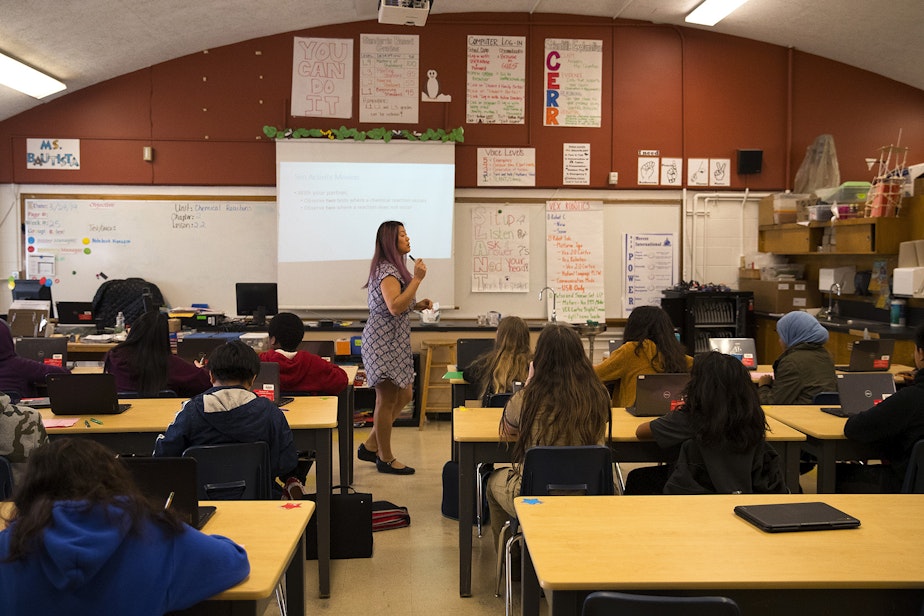Bad grades? Can’t dance at Mercer Middle School in Seattle

A dance at a Seattle middle school has drawn criticism for excluding some students. And it raises questions about approaches to school discipline.
As awareness increases about the toll that suspension and expulsion takes on children, there is more scrutiny on lesser forms of exclusionary discipline that deny children the same experiences as their peers.
One example now under fire is the ABC Activity Day and Dance at Mercer Middle School in the Beacon Hill neighborhood.
In the school newsletter, school principal Cindy Watters laid out expectations for students who want to attend the Nov. 8 event, which takes place during school hours.
Kids need "ABC grades for all classes by Wednesday before the dance," Watters wrote, as well as no more than three midday tardies, and no suspensions during the three weeks leading up to the dance.
Students excluded from the event spend the afternoon in study hall, parents report.
The principal declined an interview, but told several parents who emailed her to challenge the appropriateness of the policy that the standards are meant to name "the positive behaviors we want to see from students and setting high expectations as a warm demander will both change the culture in the classroom and help students see themselves in success."
Watters wrote that she expected around 10 to 15 students to be excluded.
Barring students from a school event like this does not sit well with education advocate Sharonne Navas.
"This is yet another example of an institution trying to do the right thing by offering incentives for creating a system of shame and blame," Navas said.
Navas heads the Equity in Education Coalition, which works to improve educational outcomes for children of color.
Navas said students of color are more likely to be struggling in school, and therefore more likely to be excluded from events like the ABC Dance.
Seattle Public Schools has been the subject of an investigation by the U.S. Department of Education since 2013 for its disproportionate discipline of students of color: Students of color receiving harsher sanctions for the same offenses as white students, a longstanding trend nationwide.
Threatening students who are having a hard time academically or behaviorally "puts the onus on the struggling students to do better, rather than the principal, teachers and support staff to do better for that student," Navas said.
Advocates for special education students say such policies also tend to fall hardest on students with learning disabilities.
Alice Doyel says her grandson was excluded from two ABC Dances when he attended Mercer last year, as well as from attending a science class field trip and the school's end-of-the-year BBQ, because he didn't have a C or above in every class.
"He could not attend any of the end of school activities unless he got Cs or above, and they were telling him that that was to motivate him," Doyel said.
"But how motivated can you be in one week when you've been pretty much demeaned by the system? So he did not get those grades," she said.
In recent years, the state legislature has placed limits on exclusionary discipline - a category that includes in-school suspension.
Education attorneys told KUOW that excluding students from an all-school event due to grades could violate state law.




